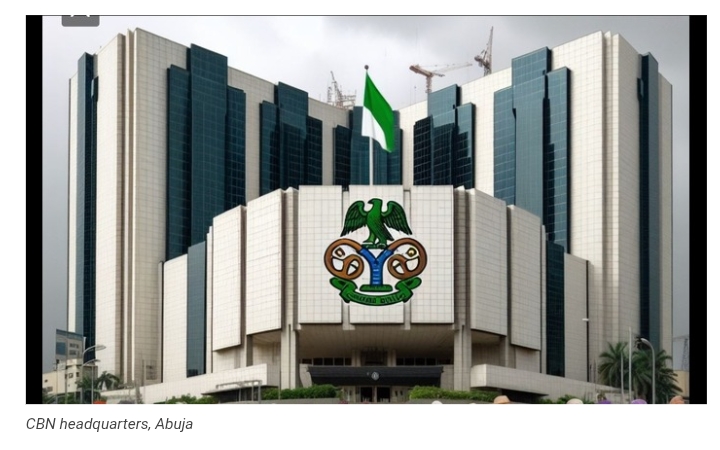E-Financial
Nigeria on Bumpy Road to Recovery; Foreign Exchange Reserves in Focus

By Lukman Otunuga, Senior Research Analyst at FXTM,
The Nigerian economy still remains on a rocky road to recovery in the face of depressed oil prices, US-China trade uncertainty and fears over decelerating global growth.
Although the nation’s GDP expanded 1.94% during the second quarter of 2019, it is unlikely to meet the government’s 3% growth targets this year. The International Monetary Fund (IMF) has projected Nigeria’s growth to expand 2.3% this year and 2.5% in 2020. Despite the ongoing push for economic diversification, 90% of foreign exchange earnings and 70% of government revenues are still attained from oil sales.
While the Central Bank of Nigeria can be commended on its effort to promote Naira stability, this has come at the expense of falling reserves which decreased to $42.1 billion in September. Much attention will be directed towards the pending foreign exchange reserves data for October scheduled for release on Wednesday. Further signs of reserves declining amid weak oil prices and intervention by the CBN is likely to weigh on the Naira.
Market mood brightens on trade deal optimism
The mood across financial markets continues to brighten after President Donald Trump said that Washington “was ahead of schedule” on a trade deal with China.
This encouraging news has certainly injected global equity bulls with a renewed sense of confidence as optimism increases that the two largest economies in the world will sign “phase one ” of the trade agreement soon. Shares across Asia are pushing higher on Tuesday amid the risk-on sentiment, after the S&P 500 hit an all time record high overnight on the back of trade hopes and prospects of lower interest rates by the Fed. The positive vibe from Asian markets should also support European stocks and potentially Wall Street later this afternoon.
Fourth time lucky? Johnson seeks snap election again
There was little to cheer about on Monday in Brexit news despite the European Union granting Britain a flexible three-month extension to the Brexit process until 31 January 2020.
Although this has prevented the UK from leaving the European Union on October 31 without a deal, it is simply kicking the can down the road. This sentiment is clearly being reflected in the British Pound which offered a fairly muted reaction to the third Brexit extension. With British lawmakers rejecting Prime Minister Boris Johnson’s plan for an early election in December, where do we go from here? While Johnson is expected to try again for an early election on Tuesday, history could repeat itself for the fourth time in two months. Until investors are offered proper direction and clarity on Brexit, Sterling’s rise may be capped below 1.30.
Dollar waits for FOMC meeting
The Dollar held steady against a basket of major currencies on Tuesday ahead of the FOMC meeting on Wednesday. With markets widely expecting the Fed to dish out another insurance rate cut in face of trade uncertainty and global growth concerns, much attention will be directed towards Jerome Powell’s press conference. Should Powell sound less dovish than expected, investors are likely to revaluate whether the Federal Reserve will cut interest rates in December.
Gold in the spotlight
Gold has stumbled into the trading week under pressure thanks to the improving market mood and risk-on sentiment. Given how prices are trading below the $1500 level, further downside could be on the cards in the short term.
However, investor expectations over the Federal Reserve cutting interest rates in October coupled with Brexit uncertainty should stimulate appetite towards the precious metal in the medium term. The longer-term outlook will remain influenced by US-China trade developments and global growth concerns. Although most remain cautiously optimistic over the two largest economies in the world signing a “phase one” trade deal, there is still room for disappointment as talks have fallen apart in the past. Focusing on the technical picture, Gold is tracking sideways on the daily charts but the breakdown below $1500 should open a path towards $1485.
E-Financial
Senate Considers Bill to Empower CBN to Regulate Fintech

Senate on Thursday began debate on a bill seeking to amend the Banks and Other Financial Institutions Act (BOFIA) 2020 to empower the Central Bank of Nigeria (CBN) to designate and supervise systemically important non-bank financial institutions, particularly major fintech operators whose activities now constitute critical national infrastructure.

Leading the debate, Tokunbo Abiru, sponsor of the bill and chairman of the Senate Committee on Banking, Insurance and Other Financial Institutions, said the amendment had become urgent due to the rapid transformation of Nigeria’s financial ecosystem and the emergence of large technology-enabled service providers operating at a scale previously unseen in the country.
Abiru noted that fintechs such as mobile money operators, payment service banks, wallet providers, digital lenders and switching companies now serve tens of millions of Nigerians, process huge daily transaction volumes and hold vast pools of sensitive financial data, yet operate within a regulatory framework that has not fully evolved to match their systemic importance.
“The reality today is that a non-bank institution, because of its market dominance, data concentration, customer reach or technological capacity, may pose risks equal to or even greater than those posed by a traditional bank,” Abiru said.
“We are therefore confronted with a regulatory gap that leaves critical parts of the financial system operating outside the highest tier of statutory oversight. This bill seeks to correct that mischief.”
He warned that without modernising BOFIA, the country risked exposing itself to data insecurity, foreign control of sensitive financial infrastructure and vulnerabilities that could undermine national security.
The senator stressed that many fintechs operate across foreign-owned networks, store customer data offshore, or use cloud systems outside regulatory reach, raising concerns around data sovereignty.
“Today, we cannot say with certainty where all the financial and behavioural data processed by some of these institutions is stored, who has access to it, or which foreign jurisdictions may lay claim to it,” he said.
Abiru recalled the temporary CBN restriction on fintech onboarding in April 2024, following issues around KYC compliance, money-laundering red flags and suspicious transactions, a development that, he said, demonstrated the limitations of existing regulatory tools.
The amendment bill proposes five key objectives, including establishing a statutory framework for designating systemically important institutions, creating a national registry of fintechs, empowering the CBN to impose enhanced supervisory requirements, strengthening data sovereignty, and improving consumer protection.
He dismissed suggestions that a new regulatory agency should be created for fintech oversight, arguing that such duplication would fragment regulation and undermine efficiency.
“Fintech regulation is deeply intertwined with monetary policy, payments oversight, prudential supervision, and systemic-risk monitoring, functions that already reside naturally within the Central Bank,” he said.
“International best practice overwhelmingly favours integrating fintech oversight within existing regulators, not creating new bureaucracies.”
Abiru urged the Senate to support the bill, which carries no financial implications under Senate rules.
Contributing to the debate, Adams Oshiomhole, former president of the Nigerian Labour Congress (NLC), shared the experience of how his accounts were once hacked, disclosing that the hackers accessed him through one of the Fintech banks.
Oshiomhole also said the identities of most of the key owners of online operators were not known and might not be held accountable for infractions since there was no law binding them to any commitments.
“I know the directors of our regular banks, but I can’t say the same of these Fintech banks.
“I don’t know the directors of MoniePoint, Opay and all others”, he added.
Oshiomhole further argued that when properly regulated through an enabling law, the operations of online financial institutions would better serve the interest of Nigerians.
Senators unanimously passed the bill for second reading and referred it to its Committee on Banking, Insurance and Other Financial Institutions for more legislative work.
E-Financial
Binance Launches ‘Binance Junior’ Crypto Savings Account for Kids and Teens

Binance, global cryptocurrency exchange, has announced the launch of Binance Junior, a new parent-controlled savings app designed for children and teenagers between the ages of six and 17.

Binance
The company said the initiative would allow parents to open and manage crypto savings accounts for their children, enabling them to save and earn digital assets in a secure environment.
According to Binance, the platform restricts trading activities but permits savings through its Flexible Simple Earn feature, while parents retain full oversight of all transactions.
Co-Chief Executive Officer of Binance, Yi He, said the product was part of the firm’s broader family finance initiative aimed at preparing the next generation for financial literacy in a digital economy.
“As parents who love our children, we not only nurture them in their early development but long-term growth with responsibility and wisdom.
“Financial health and literacy are key to preparing them for the future, especially as money is evolving,” she said.
The company explained that teenagers aged 13 and above would be able to initiate transfers within the app, subject to daily limits and local regulations, while parents would be notified of every transaction and could disable accounts at any time.
Binance also unveiled a self-published educational book, ABC’s of Crypto, which introduces children and families to basic concepts of blockchain, security, and digital assets in a simplified format.
The firm noted that Binance Junior would be available in select countries via the Apple App Store and Google Play Store.
E-Financial
CBN Scraps Cash Deposit Limits, Raises Weekly Withdrawal Threshold

Central Bank of Nigeria (CBN) has removed the limit on cash deposits and raised the weekly cash withdrawal limit across all channels to N500,000, up from N100,000.

CBN
The apex bank disclosed this in a circular to all banks titled “Revised Cash-Related Policies”, signed by Dr. Rita Sike, Director, Financial Policy & Regulation Department.
According to the CBN, the policy is designed to reduce the cost of cash management, strengthen security, and curb money laundering risks associated with the economy’s heavy reliance on physical currency.
“These policies, issued over the years in response to evolving circumstances in cash management, sought to reduce cash usage and encourage accelerated adoption of other payment options, particularly electronic payment channels. With the effluxion of time, the need has arisen to streamline the provisions of these policies to reflect present-day realities,” the CBN stated.
Effective January 1, 2026, the circular announced several key changes. The cumulative deposit limit has been removed, and the fee previously charged on excess deposits will no longer apply.
The CBN also stated that the cumulative weekly withdrawal limit across all channels has been reviewed to N500,000 for individuals and N5 million for corporates. Withdrawals above these thresholds will attract excess withdrawal charges as specified in the circular. In addition, the special monthly authorisation that allowed individuals to withdraw N5 million and corporates N10 million once a month has been abolished.
For Automated Teller Machines (ATMs), daily withdrawal remains capped at N100,000 per customer, with a maximum of N500,000 weekly, which forms part of the overall weekly withdrawal limit applicable to all channels, including point-of-sale (POS) transactions.
The circular further disclosed that excess withdrawals above the stipulated limits will attract charges of 3 per cent for individuals and 5 per cent for corporate customers, shared in the ratio of 40 per cent to the CBN and 60 per cent to the operating bank or financial institution.
Banks have also been directed to load all currency denominations in ATMs, while the existing limit on over-the-counter encashment of third-party cheques remains pegged at N100,000. Such withdrawals will also be counted as part of the cumulative weekly limit.
Additionally, banks are required to render monthly returns to the relevant supervisory departments, including the Banking Supervision Department, Other Financial Institutions Supervision Department, and the Payments System Supervision Department.
The CBN clarified that revenue-generating accounts of federal, state, and local governments, as well as the accounts of microfinance banks and primary mortgage banks held with commercial and non-interest banks, are exempted from the new withdrawal and excess-fee rules. However, the long-standing exemption previously enjoyed by embassies, diplomatic missions, and aid-donor agencies has been removed.

 E-Business3 days ago
E-Business3 days agoCyber Tsunami Hits Nigeria as Breaches Surge 1,047%, esentry Q3 Report Reveals

 E-Business3 days ago
E-Business3 days agoReport says Human Error Fuels Breaches as Only Half of Professionals Receive Cybersecurity Training

 E-Financial3 days ago
E-Financial3 days agoFBNQuest Merchant Bank Confirms New Ownership Structure, Sets Stage for Future Growth

 General News3 days ago
General News3 days agoNigeria’s GDP Rises to 3.98% in Q3 2025, Driven by Agriculture, ICT, and Finance

 E-Business2 days ago
E-Business2 days agoJumia’s Data Shows Nigerians Turning to Digital Retail to Navigate Inflation Pressures

 E-Financial3 days ago
E-Financial3 days agoMoniepoint MFB Launches Moniebook to Transform MSMEs Operations

 General News3 days ago
General News3 days agoIHS Nigeria Leads Gender Based Violence Awareness Walk, Reaffirms Zero Tolerance with Advocacy Seminar

 Telecom3 days ago
Telecom3 days agoAfrica Data Centres Partners CSSi SA to Boost Data Sovereignty in South Africa


























